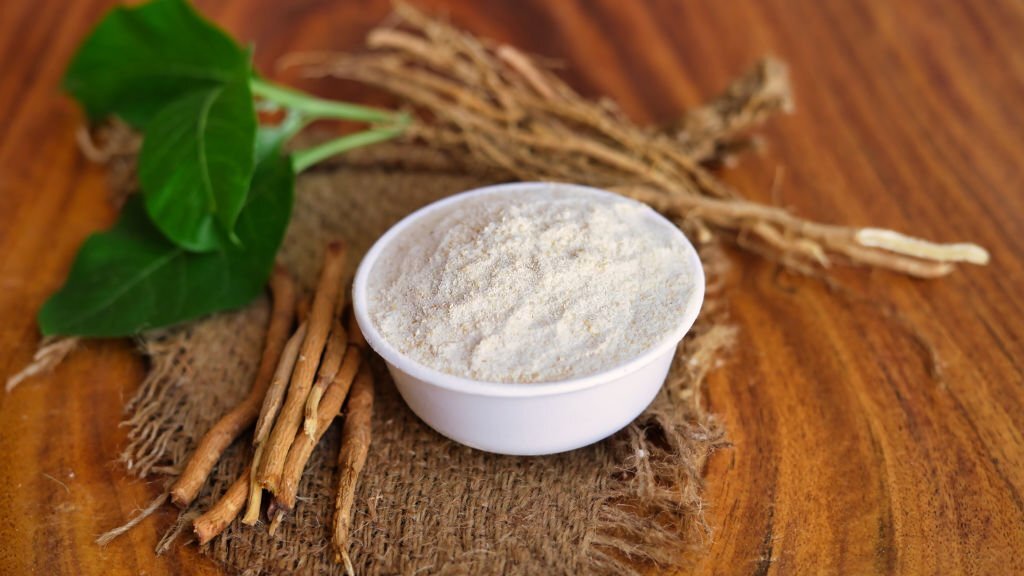Men would love a beard or mustache, but women? Not at all. It is the last thing that any woman would like to see on their face. While you have various methods to remove facial hair immediately, all of them are temporary.
Ashwagandha is said to be a great supplement for hair health, but some may worry that an imbalance in hormones or any existing condition can lead to facial hair growth. In such cases, are you willing to use Ashwagandha for health benefits?
But first, we must consider: does Ashwagandha increase facial hair in females?
There is no proof to claim that Ashwagandha can directly increase facial hair in women. For people with any health condition, it can trigger certain changes which can cause unwanted hair growth. Sometimes, Ashwagandha is also related to increasing testosterone and increasing facial hair.
Read on to learn how Ashwagandha can cause changes in the body which may increase facial hair or reduce hair loss, and how you can use Ashwagandha for benefits.
Does Ashwagandha Increase Facial Hair in Females?
Ashwagandha is a herb associated with various health benefits. But there is limited scientific evidence regarding its effect on facial hair growth in females.
Hormones, particularly androgens like testosterone, primarily influence facial hair growth. Excessive facial hair growth can result from hirsutism or polycystic ovary syndrome (PCOS) in females.
Can Ashwagandha help PCOS? Find out.
While there might be claims of excessive facial hair from Ashwagandha intake, no scientific study can prove this to be true. It might happen due to any existing condition if you suffer from facial hair. Stress, infertility, and other problems can also increase facial hair.
Consult a healthcare professional about excessive facial hair growth or other hormonal issues. They can advise you on whether you can take Ashwagandha or not.
Can biotin cause facial hair in women? Discover.
Does Ashwagandha increase Testosterone in Females?
Ashwagandha is mainly seen to balance hormones. But the effect of ashwagandha on testosterone is yet to be confirmed through research.
Some studies have suggested that ashwagandha may be able to modulate hormone levels, including testosterone. However, no proven data is available. Furthermore, testosterone is a male hormone, and females have a low level of this hormone. A little increase or imbalance can hardly create any effect.
Discover the link between Ashwagandha and sexual performance.
But significant increases in testosterone levels in females can have various implications and unwanted side effects. Monitor your hormonal levels after Ashwagandha intake to take necessary measures instantly to avoid any issues.

Ashwagandha and Hirsutism
Hirsutism is a condition characterized by excessive hair growth in women, particularly in the face, chest, and back. It might happen due to hormonal imbalances, particularly for elevated testosterone levels.
Some research suggests that ashwagandha may have anti-androgenic properties, which may help regulate and reduce androgen levels, including testosterone, in the body. This can help to relieve hirsutism or similar conditions in women.
However, research on ashwagandha’s effect on hirsutism is still emerging, and more well-designed studies are needed to establish its effectiveness and optimal dosage. Additionally, hirsutism can have various underlying causes, and it’s crucial to identify and address the hormonal imbalance or medical condition contributing to excessive hair growth.
Can Ashwagandha Cause Hair Loss?
Hair loss is a concern for many regarding Ashwagandha. But there are no reports of this happening. Rather, ashwagandha is often considered beneficial for hair health in traditional Ayurvedic medicine. It can promote hair growth and strengthen the hair follicles.
But this can vary from person to person. Unless you have sensitivities or allergies to Ashwagandha, there is hardly any side effect like hair loss. It’s also possible for interactions between medications, pre-existing conditions, or other factors to influence an individual’s response. In case, you have an increase in DHT levels, hair loss can become more likely to happen.
Long-term use of Ashwagandha, DHT hormones can cause permanent damage. Unfortunately, there won’t be any way to regrow lost hair.
Ashwagandha Benefits for Hair
While you might experience some adverse effects, Ashwagandha is extremely useful for your hair in several ways.
Alleviates Hair Loss Due to Stress
Stress significantly contributes to hair loss, and Ashwagandha can effectively reduce stress levels. By mitigating stress, Ashwagandha can help combat hair loss.
Learn about the synergy of ashwagandha and magnesium for stress relief.
Stimulates Hair Growth
Ashwagandha is particularly used for inducing hair growth. Research has indicated that this herb can stimulate hair growth and be used to formulate safe herbal remedies for hair conditions like alopecia.
Delays Premature Graying
Ashwagandha helps in preventing premature greying of hair. It achieves this by reducing the production of cortisol, a hormone associated with premature greying.
Combats Dandruff
Dandruff can contribute to hair loss. Ashwagandha possesses anti-inflammatory properties that reduce dandruff and its associated hair loss.
Enhances Scalp Circulation
Poor circulation in the scalp can also cause hair loss. Ashwagandha can improve scalp blood circulation, promoting healthy hair growth and preventing loss.
Maintains Thyroid Health
Ashwagandha can improve hypothyroidism to regulate hormonal imbalances. Hyperthyroidism or hypothyroidism due to any reason can cause your hair to fall, so you need to keep your hormones balanced.
7. Increases Red Blood Cells
A study explained that Ashwagandha could increase red blood count, producing more oxygen circulating to your scalp. So your hair will have more nourishment.
8. Strengthen and Nourish Hair
Ashwagandha is rich in antioxidants to protect your hair from free radicals and UV rays. It also helps with itching scalps to remove various scalp conditions. Additionally, it can stimulate DHEA (Dehydroepiandrosterone) production to boost collagen and sebum production. All these can repair your damaged hair.

FAQ
How to get rid of facial hair?
You can take various prescribed medicines, vitamins B6 and E, zinc, magnesium, or other supplements to remove excessive facial hair. Talk to your doctor to find the best solutions for reducing and preventing facial hair.
What are the nutrients in Ashwagandha that are good for hair?
Ashwagandha is rich in nutrients such as iron, vitamins C, calcium, and carotene. They improve scalp health and stimulate hair growth. You will also have other benefits, including reduced stress, the primary cause of hair loss.
Which is the most effective way to use ashwagandha for hair loss?
The best method is to take oral capsules or tablets. Talk to a healthcare expert to determine the dosage and number of capsules you can take regularly. It usually depends on the supplement type and the hair loss condition.
Conclusion
Ashwagandha doesn’t cause facial hair growth in women. Rather it can treat hair loss and growth of healthy hair in most people. Facial hair is harmless when it is very light. You can easily get rid of it. But it can become a severe issue when the growth is similar to men.
Women with PCOS or other hormonal conditions might suffer from unwanted hair growth, sometimes excessive and beyond temporary removal techniques. So, to ensure that Ashwagandha won’t cause any adversities with your condition, seek a doctor’s help.
You can also try various supplements and medicines if you have facial hair issues. Doctors may also prescribe Ashwagandha as a natural method to remove facial hair. Ensure that you follow the regime properly as per instructions.
For more information on Ashwagandha, visit our blogs.

I am a health and wellness enthusiast working in a Pittsburgh-based wellness clinic. My primary role as a consultant is to tailor a balanced lifestyle for my patients, where positive steps and potent supplements play a synergistic role.

